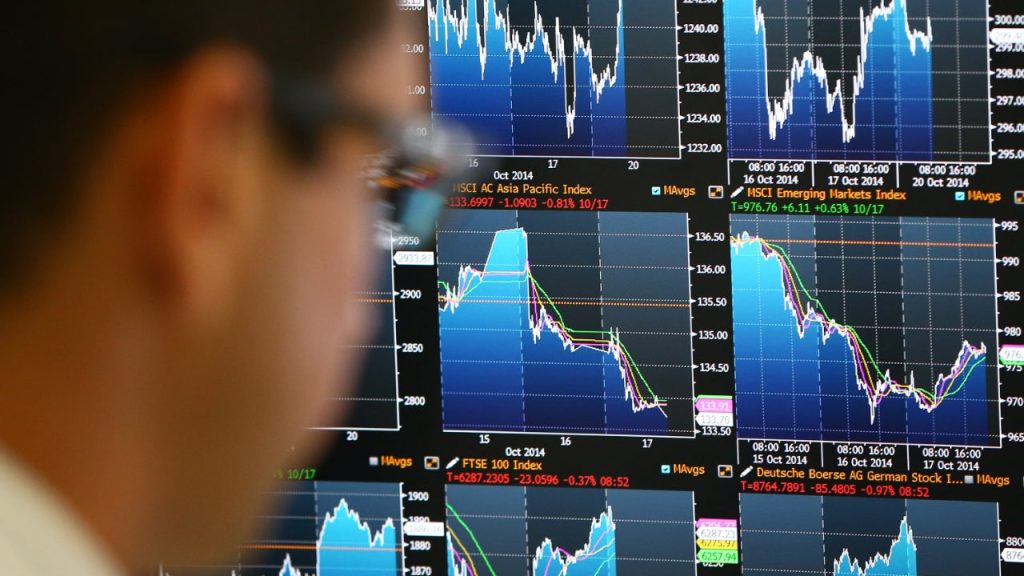Index funds have gained enormous popularity with investors over the past few decades as a cost-effective way to gain access to highly diversified portfolios. Through mutual funds and ETFs, total market index funds allow investors to purchase a basket of stocks that track an index focused on the overall U.S. stock market or markets around the world. They can be a great way for investors to benefit from a country’s economic growth without having to select which individual companies to invest in.
Here’s what else you should know about total market index funds and a few options to consider.
What is a total stock market index fund?
A total market index fund is a mutual fund or ETF that tracks an index focused on virtually the entire stock market of a country or region. Many people are familiar with index funds that track popular indexes such as the S&P 500 or the Dow Jones Industrial Average, but those funds hold companies with large market capitalizations and exclude small and mid-sized companies. Total market funds hold companies across the market-cap spectrum and allow investors to earn the return of the overall stock market.
Most total market index funds are weighted by market capitalization, so the funds will still have a large exposure to the largest companies in the U.S. such as Nvidia, Apple and Microsoft. But the funds will also own small-cap companies that may have more room to grow and potentially earn higher returns than their large-cap counterparts.
Total market index funds typically come with very low fees, allowing more of the return to fall to the funds’ investors. This is a key part of index-fund investing, which allows investors to earn the return of the market without needing to have deep financial knowledge or stock-picking skills. Keeping expenses low has proven to be a successful investing strategy for many.
Top-performing total stock market ETFs
Bankrate selected its top funds based on the following criteria:
- U.S. funds that appear in ETF.com’s screener for U.S. total market
- Funds among the top performers over the last five years
- Performance measured on July 19, 2024 using the most recent figures
Vanguard Total Stock Market ETF (VTI)
This ETF seeks to track the performance of the CRSP U.S. Total Market Index and invests in large-, mid- and small-cap companies across the value and growth styles.
- Year-to-date performance: 15.8 percent
- Historical performance (5-year annual): 14.1 percent
- Expense ratio: 0.03 percent
Schwab U.S. Broad Market ETF (SCHB)
This fund’s goal is to track the total return of the Dow Jones U.S. Broad Stock Market Index, which includes companies across the market-cap spectrum.
- Year-to-date performance: 15.8 percent
- Historical performance (5-year annual): 14.1 percent
- Expense ratio: 0.03 percent
iShares Core S&P Total U.S. Stock Market ETF (ITOT)
This fund seeks to track the performance of the S&P Total Market Index and currently holds more than 2,500 securities.
- Year-to-date performance: 15.7 percent
- Historical performance (5-year annual): 14.1 percent
- Expense ratio: 0.03 percent
SPDR Portfolio S&P 1500 Composite Stock Market ETF (SPTM)
This fund seeks to match as closely as possible the total return of the S&P Composite 1500 Index, which represents about 90 percent of the investable U.S. equity market.
- Year-to-date performance: 16.4 percent
- Historical performance (5-year annual): 14.6 percent
- Expense ratio: 0.03 percent
Top-performing total stock market mutual funds
Many of the ETFs mentioned above are also offered in mutual fund form. But keep in mind that mutual funds typically carry investment minimums of a few thousand dollars and can only be traded once a day at the fund’s closing NAV. On the plus side, they may come with slightly lower fees than comparable ETFs. Below are a couple of total market mutual funds to also consider.
Fidelity Total Market Index Fund (FSKAX)
This fund’s objective is to generate a return that corresponds to the total return on a broad range of U.S. stocks, and it typically has about 80 percent of its assets invested in stocks included in the Dow Jones U.S. Total Stock Market Index.
- Year-to-date performance: 15.8 percent
- Historical performance (5-year annual): 14.1 percent
- Expense ratio: 0.015 percent
Wilshire 5000 Index Investment Fund (WFIVX)
This fund seeks to replicate the total return of the Wilshire 5000 Total Market Index, which includes about 3,500 stocks and is market-cap weighted.
- Year-to-date performance: 15.2 percent
- Historical performance (5-year annual): 13.7 percent
- Expense ratio: 0.60 percent
* Note: Mutual fund performance data as of July 18, 2024
Total stock market index funds FAQ
What are the pros and cons of investing in total market index funds?
There are several benefits of investing in total market index funds, but there are also some negatives to keep in mind. Here are the pros and cons to consider:
Pros of total market index funds
- Diversification: Through one security, you’re able to have a broadly diversified portfolio across market caps and investment styles.
- Low fees: These funds are relatively easy to find with very low expense ratios, meaning you’ll likely pay just a few dollars for every $10,000 you have invested.
- Very little research needed: Because these funds seek to match the performance of the entire stock market, you won’t need to spend time researching which sectors or companies are likely to outperform.
- Earn long-term equity returns: By purchasing a total market fund, you’ll be able to achieve that region’s long-term stock market return as long as you’re able to stay invested.
- Quickly add geographic exposure: These funds are also a great way to add a new geography to your portfolio quickly and without much effort.
Cons of total market index funds
- Growth is limited: Your returns are limited to the overall stock market and aren’t likely to vary much by picking different total market funds.
- Downside of broad diversification: Because these funds are invested so broadly, you’ll miss out on outsized gains when a particular segment of the market does well. If small-caps outperform in a major way, a total market fund is likely to lag.
- Hard to stay disciplined: Investing in total market index funds can be a bit boring, even if it is a very sensible way to invest. Boring strategies can sometimes be difficult to stick to especially when other areas are performing better.
Who should invest in total market index funds?
Total market index funds can be a great choice for both new and experienced investors. They’re one of the easiest ways to gain broad stock market exposure at a low cost. You don’t need to be a financial expert to buy and hold the fund’s shares, making them a great choice for investors saving for long-term goals like retirement. Remember to check the fund’s expense ratio to make sure you’re paying the lowest fees possible.
Why are the Vanguard total stock market index fund admiral shares so popular?
The Vanguard total stock market index fund admiral shares are popular because it allows investors to gain exposure to the entire U.S. stock market at a low cost. Vanguard has a reputation for doing what’s best for investors and its admiral shares keep costs low while requiring lower investment minimums than other share classes. To invest in an index fund’s admiral shares you must maintain an investment of $3,000 in the fund, where you’ll pay just 4 basis points, or 0.04 percent, in annual fees. That means for every $10,000 you have in the fund, you’ll pay $4 in expenses.
Bottom line
Total market index funds are a great way for investors to access a broadly diversified portfolio of stocks at a very low cost. Index funds in general have been found to outperform actively managed funds in part due to their low fees. Consider making a total market mutual fund or ETF a core part of your long-term investment plan.
Editorial Disclaimer: All investors are advised to conduct their own independent research into investment strategies before making an investment decision. In addition, investors are advised that past investment product performance is no guarantee of future price appreciation.
Read the full article here










